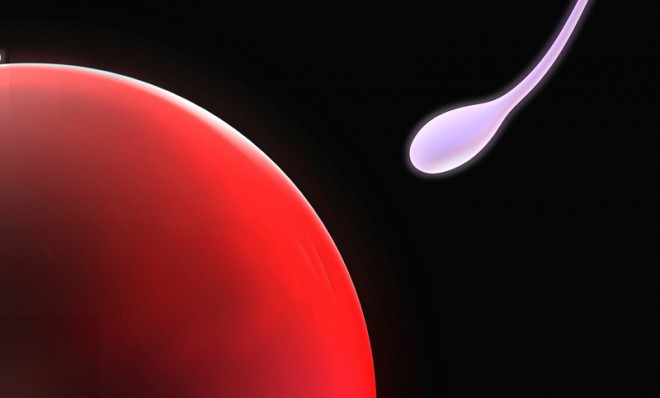At what age does a man's sperm quality deteriorate?
Some researchers say the answer is 40. But it might be years earlier.

A free daily email with the biggest news stories of the day – and the best features from TheWeek.com
You are now subscribed
Your newsletter sign-up was successful
We've known for some time that a man's sperm count and quality deteriorates with time, in much the same way Mother Nature hangs a ticking biological countdown over the fairer sex. But at what age a man reaches that precipice has been a matter of contention.
Previous studies have suggested that a man's sperm quality begins to decline around age 40. A new study, however, posits that the drop off may begin much earlier.
The decline in sperm quality may start as early as age 35, according to New Scientist. Researchers at Reproductive Technology Laboratories in Los Angeles reached their conclusion after examining roughly 5,000 men between the ages of 16 and 72.
The Week
Escape your echo chamber. Get the facts behind the news, plus analysis from multiple perspectives.

Sign up for The Week's Free Newsletters
From our morning news briefing to a weekly Good News Newsletter, get the best of The Week delivered directly to your inbox.
From our morning news briefing to a weekly Good News Newsletter, get the best of The Week delivered directly to your inbox.
Why this is, however, isn't explicitly outlined in the findings. But there are a few possibilities.
Sperm, like any other cell, spend their lives constantly regenerating. And with every cell division comes an increased risk of genetic mutation, which is why some studies have linked older fathers (40 and up) to children with diseases like autism and schizophrenia.
"Whether it's 35 or 40, the message from this and other papers is that men should be aware of age-related changes in their reproductive system and if they wish to become fathers they shouldn't leave it too late," says Allan Pacey, a fertility expert at the University of Sheffield in the U.K.
Oddly, the study also found that men older than 55 are more likely to have daughters, due to an increase in sperm carrying the X chromosome. Why this X and Y chromosome imbalance happens, though, is still a mystery.
A free daily email with the biggest news stories of the day – and the best features from TheWeek.com
-
 6 gorgeous homes in warm climes
6 gorgeous homes in warm climesFeature Featuring a Spanish Revival in Tucson and Richard Neutra-designed modernist home in Los Angeles
-
 Russia’s ‘cyborg’ spy pigeons
Russia’s ‘cyborg’ spy pigeonsUnder the Radar Moscow neurotech company with Kremlin-linked funding claims to implant neural chips in birds’ brains to control their flight, and create ‘bio-drones’
-
 Political cartoons for February 8
Political cartoons for February 8Cartoons Sunday’s political cartoons include going down the drain, American history, and more